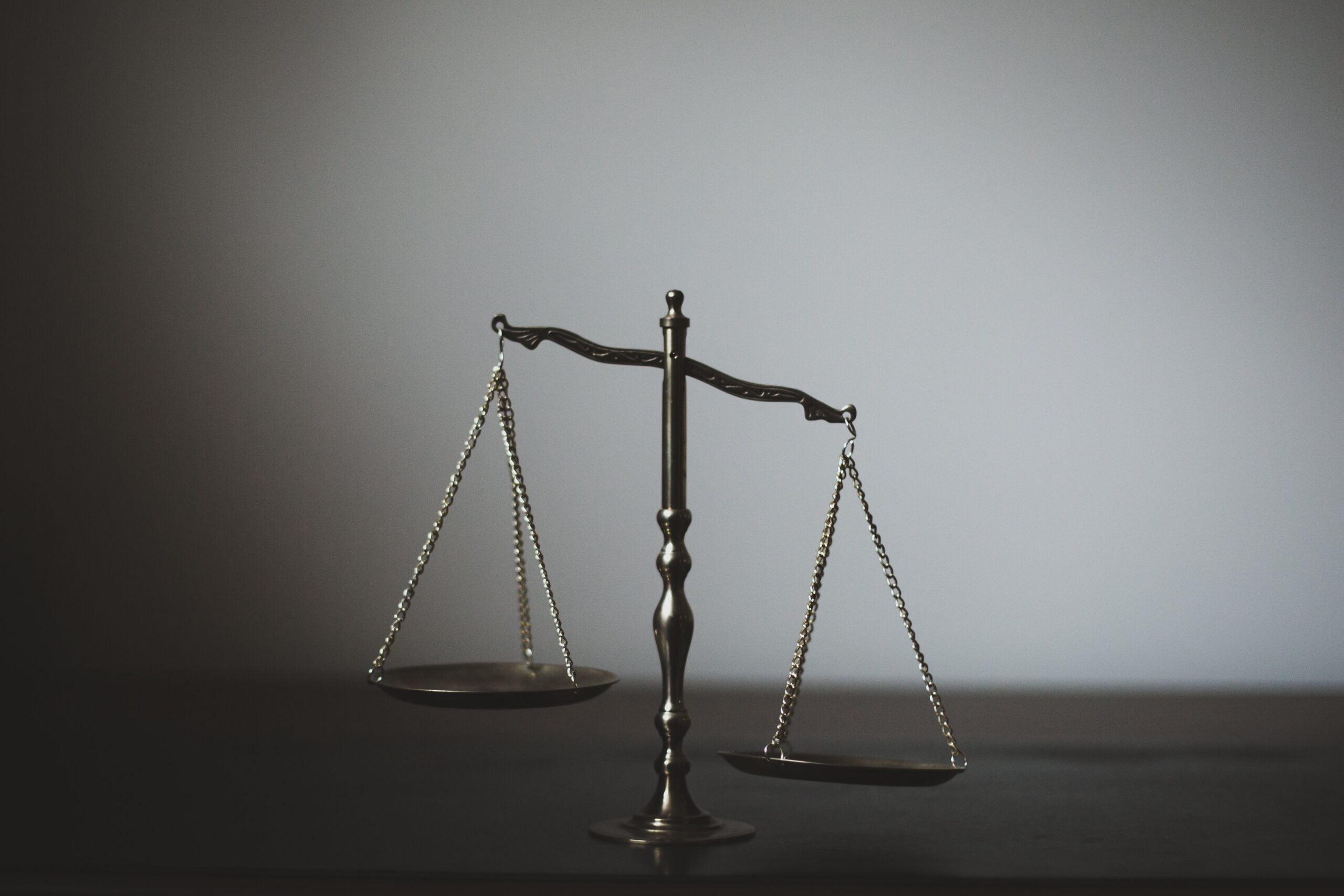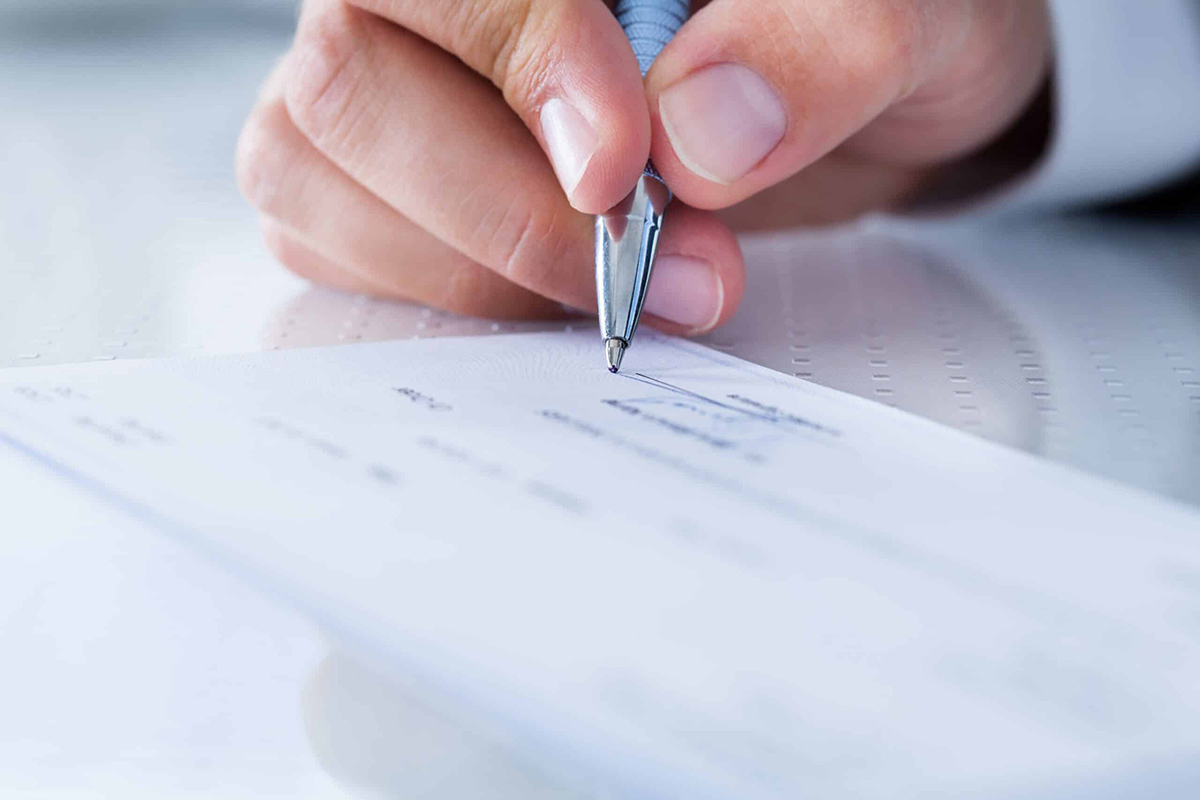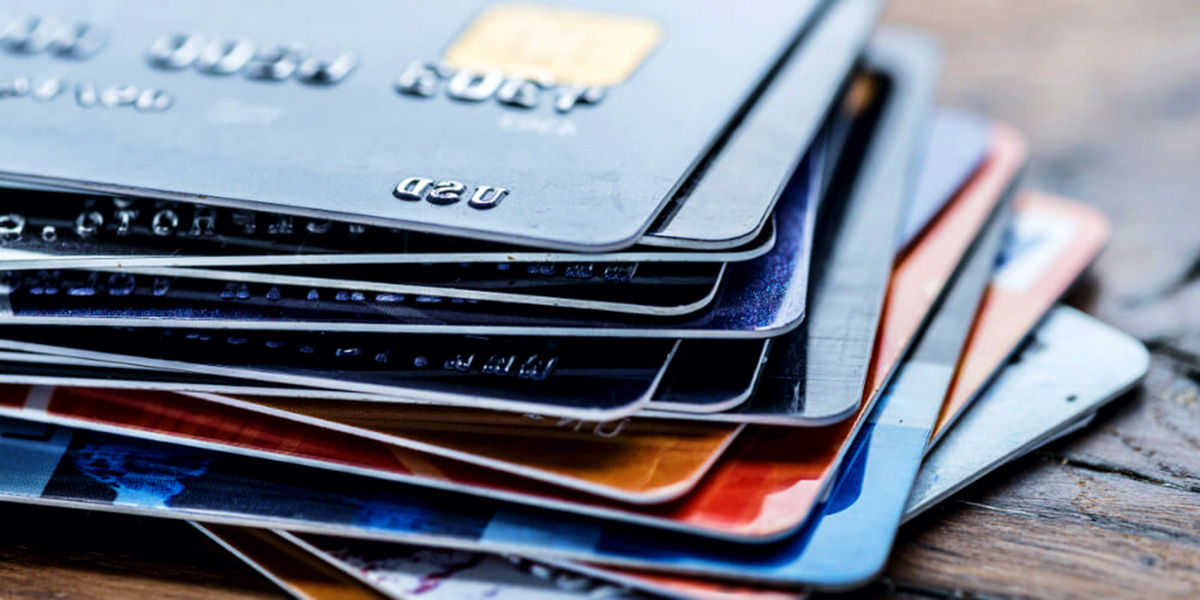Home>Finance>How Long Does A Company Have To Charge Your Credit Card


Finance
How Long Does A Company Have To Charge Your Credit Card
Modified: March 1, 2024
Discover how long a company has to charge your credit card and stay on top of your finance commitments. Get the answers you need in this informative guide.
(Many of the links in this article redirect to a specific reviewed product. Your purchase of these products through affiliate links helps to generate commission for LiveWell, at no extra cost. Learn more)
Table of Contents
- Introduction
- Understanding Credit Card Charges
- Timeframe for Charging Credit Cards
- Legal Requirements for Charging Credit Cards
- Factors Affecting the Timeframe for Credit Card Charges
- Consumer Rights and Protections
- Common Issues Regarding Credit Card Charges
- Tips for Dealing with Delayed Credit Card Charges
- Conclusion
Introduction
Welcome to the world of credit cards, where convenience meets financial flexibility. Credit cards have become an integral part of our lives, allowing us to make purchases without always having cash on hand. However, have you ever wondered how long it takes for a company to charge your credit card after a transaction? In this article, we will explore the timeline for credit card charges and the factors that can affect it.
Understanding the process of credit card charges is essential, as it helps you manage your personal finances effectively. Whether you’re making online purchases, paying bills, or using your credit card for everyday expenses, knowing how long it takes for the charges to reflect on your card can provide clarity and help you plan your finances better.
As consumers, we often assume that the charge is instantaneously deducted from our credit card once a transaction is made. However, the reality is a bit more complex than that. Several factors come into play, including the type of transaction, the merchant’s processing time, and the legal requirements surrounding credit card charges.
In the following sections, we will delve deeper into the timeframe for credit card charges and the legal obligations that companies must follow. We’ll also explore some common issues that consumers may encounter and provide tips for dealing with delayed credit card charges. Let’s jump right in!
Understanding Credit Card Charges
Before we dive into the timeframe for credit card charges, it’s important to have a clear understanding of how credit card charges actually work. When you make a purchase using your credit card, the transaction goes through a series of steps before the charge appears on your statement.
When you present your credit card to a merchant, they typically initiate the payment process by using a card reader or an online payment gateway. The merchant’s bank, also known as the acquiring bank, validates the transaction and sends it to the credit card network, such as Visa, Mastercard, or American Express. The credit card network then verifies the transaction, authorizes the payment, and sends a response back to the acquiring bank.
Once the acquiring bank receives confirmation from the credit card network, they credit the merchant’s account with the transaction amount. However, this does not mean that the charge has been applied to your credit card just yet. The acquiring bank then batches all the transactions made during a specific time period and sends them to the merchant’s bank for settlement.
The settlement process, which involves the transfer of funds from the acquiring bank to the merchant’s bank, can take anywhere from a few hours to a couple of days. During this time, the charge is considered pending, and it won’t reflect on your credit card statement.
After the settlement process is complete, the merchant’s bank sends a notification to the credit card network to finalize the transaction and transfer the funds to the acquiring bank. Finally, the acquiring bank updates your credit card statement to reflect the charge.
It’s important to note that credit card charges are typically posted to your statement as pending before they’re officially applied to your account. The pending charges may appear as holds or authorizations, indicating that the amount is temporarily deducted from your available credit but hasn’t been fully processed yet.
Understanding this process can help you navigate through your credit card transactions and provide clarity on why certain charges may take longer to appear on your statement. Now that we have a basic understanding of credit card charges, let’s explore the timeframe for these charges and the factors that can affect them.
Timeframe for Charging Credit Cards
When it comes to the timeframe for charging credit cards, there is no one-size-fits-all answer. The process can vary depending on several factors, including the merchant’s processing time, the type of transaction, and the credit card network’s policies. Generally, credit card charges can take anywhere from a few hours to a few days to appear on your statement.
In some cases, especially for in-person transactions at brick-and-mortar stores, the charge may appear on your credit card statement within a matter of hours or even instantly. This is because the acquiring bank and credit card network can process and authorize the transaction promptly, allowing the charge to be reflected on your statement in a relatively short amount of time.
On the other hand, online transactions or purchases made through e-commerce platforms may take slightly longer to reflect on your statement. This is due to the additional steps involved, such as the verification of the transaction by the merchant, the settlement process between the acquiring bank and the merchant’s bank, and the final update of your credit card statement.
It’s worth noting that some merchants may choose to hold off on charging your credit card until they are ready to ship the product or provide the service. This practice is commonly seen in industries where the availability of the product or service may fluctuate, such as travel and hospitality. In such cases, the authorization may be obtained at the time of purchase, but the actual charge is applied only when the product is ready to be shipped or the service is rendered.
Additionally, recurring charges, such as monthly subscriptions or memberships, often have a set billing cycle. These charges are typically processed at specific intervals, such as every month or annually, based on the agreement between the merchant and the cardholder. The credit card statement will reflect these recurring charges on the billing date associated with the subscription or membership.
Ultimately, the timeframe for charging credit cards can vary depending on multiple factors. It is important to review your credit card statement regularly and keep track of your transactions to ensure accuracy and identify any discrepancies in charges.
Legal Requirements for Charging Credit Cards
When it comes to charging credit cards, there are certain legal requirements that companies must adhere to. These regulations are designed to protect consumers and ensure fair and transparent practices in credit card transactions.
One of the key legal requirements is obtaining the cardholder’s consent before charging their credit card. This consent can be obtained either through the cardholder physically presenting their card for in-person transactions or through the cardholder providing their card information for online or over-the-phone transactions. It is essential that companies have documented proof of consent to prevent unauthorized charges and protect both the cardholder and the business.
Companies are also obligated to comply with the rules and guidelines set forth by the credit card networks, such as Visa, Mastercard, and American Express. These networks have specific rules and procedures in place to ensure the security and integrity of credit card transactions. Failure to comply with these rules can result in penalties or even the termination of a company’s ability to process credit card payments.
Another legal requirement is the obligation to adequately protect and secure the cardholder’s personal and financial information. The Payment Card Industry Data Security Standard (PCI DSS) sets forth a framework for companies to securely process, store, and transmit cardholder data, reducing the risk of data breaches and identity theft. Compliance with PCI DSS is essential for businesses that handle credit card information to maintain consumer trust and avoid legal and financial consequences.
In addition to these general legal requirements, there are specific regulations in place to protect consumers from fraudulent or unauthorized charges. The Fair Credit Billing Act (FCBA) provides consumers with certain rights in case of billing errors or unauthorized charges on their credit card statements. Under the FCBA, consumers have the right to dispute charges and request investigations into errors or fraudulent transactions. The issuing bank or card issuer is responsible for investigating and resolving these disputes in a timely manner.
It’s important for both consumers and companies to understand and comply with these legal requirements to ensure a fair and secure credit card transaction process. Consumers should review their credit card statements regularly, promptly report any unauthorized charges, and familiarize themselves with their rights under the FCBA. Companies, on the other hand, should implement proper consent procedures, maintain PCI DSS compliance, and respond to customer disputes in a timely and efficient manner.
Factors Affecting the Timeframe for Credit Card Charges
While there is a general timeline for credit card charges, several factors can influence the actual timeframe for these charges to appear on your credit card statement. Understanding these factors can help you manage your expectations and avoid confusion when it comes to the timing of credit card charges.
1. Merchant Processing Time: The processing time of the merchant plays a significant role in determining how long it takes for a credit card charge to appear. Some merchants process transactions immediately, while others may batch them and process them at specific intervals. This can result in variations in the timeframe for charges to appear on your statement.
2. Payment Gateway: For online transactions, the payment gateway used by the merchant can affect the processing time. Different payment gateways have varying levels of efficiency and may have different procedures in place for verifying and settling transactions. It’s worth noting that some payment gateways offer faster settlement options, which can reduce the time it takes for charges to reflect on your credit card statement.
3. Credit Card Network: The credit card network, such as Visa, Mastercard, or American Express, also plays a role in the timeframe for credit card charges. Each network has its own processes and procedures for authorizing and settling transactions. While the differences may be minimal, they can contribute to variations in the time it takes for charges to be reflected on your statement.
4. Type of Transaction: The nature of the transaction can affect the timing as well. In-person transactions at physical stores typically have faster processing times compared to online transactions, which may involve additional verification steps. Recurring charges, such as monthly subscriptions, have predetermined billing cycles and will appear on your statement according to the specified intervals.
5. Weekends and Holidays: Weekends and holidays can also impact the timeframe for credit card charges. Banks and financial institutions may have reduced operating hours or limited processing capabilities during these times, resulting in delayed settlement and reflection of charges on your statement.
It’s important to note that while these factors can influence the timeframe for credit card charges, there are generally accepted industry standards for processing and settling transactions. However, it’s always a good idea to keep track of your transactions and review your credit card statement regularly to ensure accuracy and identify any discrepancies or unauthorized charges.
By being aware of these factors, you can have a better understanding of the potential timeframe for credit card charges and avoid unnecessary concerns or confusion about the timing of transactions on your credit card statement.
Consumer Rights and Protections
As a credit cardholder, you have certain rights and protections in place to safeguard your interests and ensure fair treatment in credit card transactions. These rights and protections are designed to empower consumers and provide recourse in case of issues or disputes with credit card charges.
1. Fair Credit Billing Act (FCBA): The FCBA is a federal law that protects consumers from unauthorized charges and billing errors. It allows you to dispute charges on your credit card statement and request a thorough investigation from the card issuer. If the investigation finds there was an error, the card issuer must correct the billing and rectify any related finance charges or fees.
2. Zero Liability Protection: Credit card networks, such as Visa, Mastercard, and American Express, offer zero liability protection to their cardholders. This means that if your credit card is lost, stolen, or used fraudulently, you are not held responsible for any unauthorized charges. It is important to report the loss or theft of your card promptly to take advantage of this protection.
3. Dispute Resolution: In case of a dispute with a credit card charge, you have the right to seek resolution through the card issuer’s dispute resolution process. This includes filing a formal complaint, providing documentation or evidence to support your claim, and requesting a review of the disputed charge. The card issuer is obligated to investigate and respond to your dispute within a specified timeframe.
4. Consumer Financial Protection Bureau (CFPB): The CFPB is a government agency that oversees consumer financial products and services, including credit cards. They have established regulations and guidelines to protect consumers and ensure fair practices by credit card issuers and companies. If you encounter issues or concerns with a credit card charge, you can file a complaint with the CFPB for further investigation and resolution.
It’s important to familiarize yourself with these consumer rights and protections to ensure that you are fully aware of your options in case of any discrepancies or unauthorized charges. Reviewing your credit card statements regularly and reporting any issues promptly will help you protect your interests and maintain the integrity of your credit card transactions.
Remember, being an informed and proactive consumer is key to exercising your rights and ensuring a positive credit card experience.
Common Issues Regarding Credit Card Charges
While credit cards offer convenience and flexibility, there may be instances where you encounter issues or face challenges related to credit card charges. Understanding these common issues can help you navigate potential pitfalls and take proactive measures to address them. Here are some of the most common issues regarding credit card charges:
1. Unauthorized Charges: Unauthorized charges occur when someone fraudulently uses your credit card without your consent. It’s crucial to monitor your credit card statements regularly to identify any suspicious or unfamiliar charges. If you notice any unauthorized charges, report them to your credit card issuer immediately to initiate an investigation and protect yourself from financial liability.
2. Billing Errors: Billing errors can range from incorrect charge amounts to duplicate charges or charges for products or services not received. It’s important to review your credit card statements thoroughly to identify any discrepancies or errors. If you notice a billing error, contact your credit card issuer to dispute the charge and request a correction.
3. Delayed Charges: In some instances, there may be delays in charges appearing on your credit card statement. This can lead to confusion or concerns, especially if you’re tracking your expenses or managing your budget closely. While delays can occur due to various factors, keeping track of your transactions and regularly checking your credit card statement will help you ensure that charges are properly reflected in a timely manner.
4. Cancelled or Returned Transactions: If a transaction is cancelled or a product/service is returned, you might expect a refund on your credit card. However, it’s important to note that refunds may take some time to process and appear on your statement. Depending on the merchant’s policy and the credit card network’s procedures, it could take several days or even weeks for the refund to reflect on your statement. If the refund doesn’t appear after a reasonable timeframe, contact the merchant or your credit card issuer to inquire about the status of the refund.
5. Subscription Charges: Subscriptions, such as online streaming services or membership subscriptions, sometimes have recurring charges. It’s not uncommon for consumers to forget about these charges or find it challenging to cancel them. To avoid unexpected charges, carefully review the terms and conditions of any subscription before signing up. Keep track of your subscriptions and promptly cancel any that you no longer wish to continue to avoid ongoing charges.
Dealing with these common issues regarding credit card charges requires vigilance and proactive communication with your credit card issuer and merchants. By carefully reviewing your statements, promptly reporting unauthorized charges or billing errors, and staying informed about your rights and protections as a consumer, you can effectively resolve these issues and ensure a smooth credit card experience.
Tips for Dealing with Delayed Credit Card Charges
Dealing with delayed credit card charges can be frustrating, especially when you’re trying to keep track of your expenses or manage your finances. However, there are steps you can take to navigate this situation effectively. Here are some tips for dealing with delayed credit card charges:
1. Maintain Detailed Records: Keep track of all your transactions, including the date, merchant, and amount. This will help you identify any delays in charges appearing on your credit card statement. Maintaining detailed records will also come in handy if you need to dispute a charge or provide evidence of a transaction.
2. Contact the Merchant: If you notice a significant delay in a charge appearing on your credit card statement, reach out to the merchant to inquire about the status of the transaction. They may be able to provide you with updates or clarification on the delay. It’s important to have open communication with the merchant to obtain accurate information.
3. Contact your Credit Card Issuer: If you’ve reached out to the merchant and don’t receive a satisfactory response or resolution, contact your credit card issuer. Explain the situation and provide any relevant details, such as the transaction date, merchant information, and attempts to contact the merchant. The credit card issuer can initiate an investigation or provide guidance on how to proceed.
4. Document Communications: Keep a record of all communications with the merchant and your credit card issuer. This includes dates, names of customer service representatives, and a summary of the discussion. Having a detailed account of your interactions can help in case you need to escalate the issue or file a formal complaint.
5. Monitor the Situation: Keep an eye on your credit card statement for any updates or changes in the delayed charge. It’s possible that the charge may appear after some time or be resolved through communication with the merchant or credit card issuer. Stay vigilant and report any discrepancies or unresolved issues promptly.
6. Review your Rights and Protections: Familiarize yourself with your consumer rights and protections, including the Fair Credit Billing Act (FCBA) and zero liability policies offered by credit card networks. Understanding your rights can help you navigate the situation with confidence and take appropriate action if necessary.
7. Be Patient: While delays can be frustrating, it’s important to remain patient and allow reasonable time for the charge to appear. In some cases, delays may be due to processing or settlement issues beyond your control. If the charge still does not appear after a reasonable timeframe, continue to follow up with the merchant and your credit card issuer.
Dealing with delayed credit card charges can be a hassle, but by staying proactive, communicating effectively, and understanding your rights, you can navigate the situation successfully. Remember to keep thorough records, document your communications, and seek assistance when needed to resolve any issues related to delayed credit card charges.
Conclusion
Credit card charges are an integral part of our financial lives, but understanding the timing and processes involved is crucial for effective financial planning. In this article, we’ve explored the various aspects of credit card charges, including the timeframe for charges to appear on your statement, legal requirements, factors that can affect the timing, consumer rights and protections, common issues, and tips for dealing with delayed charges.
It’s important to remember that credit card charges may not always appear immediately after a transaction. They go through a series of steps, including verification, authorization, settlement, and final reflection on your credit card statement. Knowing these steps will help you manage your personal finances and avoid confusion or concerns about the timing of charges.
Understanding your legal rights and protections as a credit cardholder is essential. The Fair Credit Billing Act (FCBA) and zero liability policies offer safeguards against unauthorized charges and billing errors, ensuring that you have recourse if any issues arise. Additionally, maintaining detailed records, contacting the merchant or credit card issuer when needed, and monitoring your statements will help you handle any potential discrepancies or delays effectively.
Remember to stay vigilant and review your credit card statements regularly. Check for unauthorized charges, billing errors, or delayed charges. If you encounter any problems, don’t hesitate to reach out to your credit card issuer or the merchant for clarification and resolution.
By being proactive, staying informed, and understanding the nuances of credit card charges, you can confidently manage your credit card transactions and maintain control over your financial well-being. Use the information and tips provided in this article to navigate the world of credit card charges with ease and make informed decisions about your personal finances.














